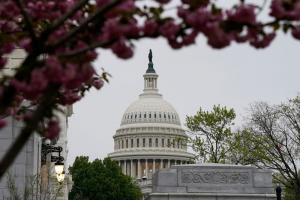Oil prices edged lower in Asian trading on Tuesday after hitting a two-week high in the prior session on news of U.S.-China tariff reductions, as investors were cautious ahead of key U.S. inflation data due later in the day.
As of 22:05 ET (02:05 GMT), Brent Oil Futures expiring in June edged 0.3% lower to $64.76 per barrel, while West Texas Intermediate (WTI) crude futures also fell 0.3% to $61.36 per barrel.
Both contracts remained near their two-week high, reached on Monday, as the U.S. and China agreed to temporarily lower soaring tariffs placed on each other.
US-China trade deal supports oil prices The U.S. will reduce its tariff on Beijing from 145% to 30%, while China will lower its retaliatory tariff from 125% to 10%, both for 90 days.
The announcement came via a joint statement following trade talks in Switzerland over the weekend.
As the world’s two largest economies move toward a more stable trade relationship, expectations of stronger industrial activity and consumer demand, especially in China, lifted sentiment around the demand outlook.
“However, while a thawing in trade tensions between China and the US is helpful, there’s still plenty of uncertainty over what happens in 90 days. This uncertainty could continue to generate headwinds for oil demand,” ING analysts said in a note.
For the day, investors awaited the U.S. consumer price index inflation data for April, due on Tuesday, to assess the impact of President Donald Trump’s trade policies.
Markets assess demand outlook amid OPEC+ hike; Ind-Pak tensions
Despite easing trade tensions, oil prices dipped on Tuesday as investors remained worried about the demand outlook after plans from OPEC+ to increase oil output in May and June.
Trump is scheduled to visit Saudi Arabia, Qatar, and the UAE this week to address diplomatic concerns related to Gaza and Iran, while also seeking to advance business and trade agreements with the oil-rich nations.
“Though demand has been a key concern for the oil market, supply increases from OPEC+ mean that the oil market will be well supplied through the remainder of the year. How well supplied depends on whether OPEC+ sticks with the aggressive supply hikes we saw for May and June,” ING analysts said.
“Also, the forward curve suggests the market may become increasingly more comfortable with supply towards year-end,” they added.
Investors also closely monitored increased geopolitical tensions between India and Pakistan, after both sides agreed to a ceasefire over the weekend following the worst fighting in decades.













